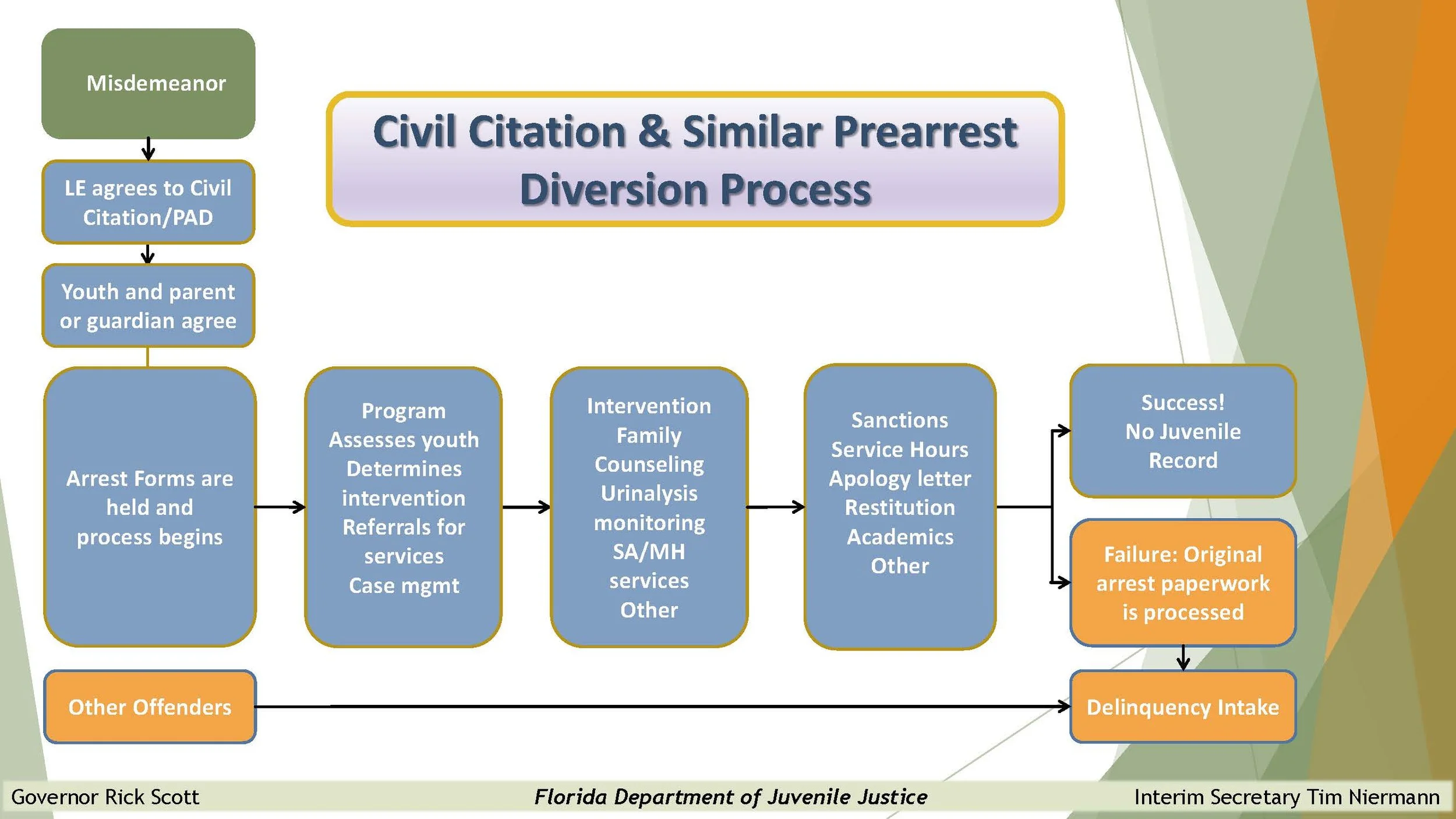Civil Citations
According to Florida law, every judicial circuit is required to establish a juvenile civil citation program. Although the local law enforcement agencies are not required to specifically implement these programs, they will at least have the option once their circuit – through the cooperation of the State Attorney, the Public Defender, the Clerk of Court, and the judiciary -establishes the rules for that jurisdiction’s program.
Typically, when we hear the term “civil citation”, we think of something like a speeding ticket – something that results in a fine, but not an arrest. Juvenile civil citations, however, are issued for otherwise arrestable offenses. These types of civil citations are a form of pre-arrest diversion. While most diversion programs offer offenders a way to avoid conviction, pre-arrest diversion programs actually offer an alternative to arrest.
There are many advantages to participation in a pre-arrest diversion program. Not only are there benefits for the offender- like avoiding an arrest record, as well as the stigma and stress associated with an arrest – but the community also may benefit in tax savings and reduced recidivism rates.
Although every local circuit has its own specific qualification criteria, these programs have the same general rules. First, civil citations are only available for non-serious misdemeanor offenses for juveniles with no criminal history. The programs last, on average, about ninety days, and will require the juvenile to participate in a variety of services, targeted at their individual needs.
Once a law enforcement officer issues a civil citation to a juvenile, the offender and their parent must agree to accept the citation in order to continue. If accepted, they will be scheduled for an orientation during which the program will be explained and all parties will sign a contract. The Department of Juvenile Justice will then perform an assessment on the juvenile. Finally, sanctions, services, and restitution (where applicable) will be assigned to the juvenile, based on their individual needs. These services may include, but are not limited to, mental health counseling, substance abuse treatment, prevocational skills, or educational and academic assistance.
Participation in civil citation programs is voluntary. If a juvenile is offered a civil citation, they are not required to accept. If a child and/or their parent declines participation, the participating law enforcement officer and prosecutor will determine if an arrest is appropriate. If so, the child would proceed through the normal juvenile court process. Similarly, if a juvenile accepts a civil citation, but later fails to complete the program, their case will be forwarded to the State for consideration of arrest.
Additional Information and Resources
Civil Citation Information By County

